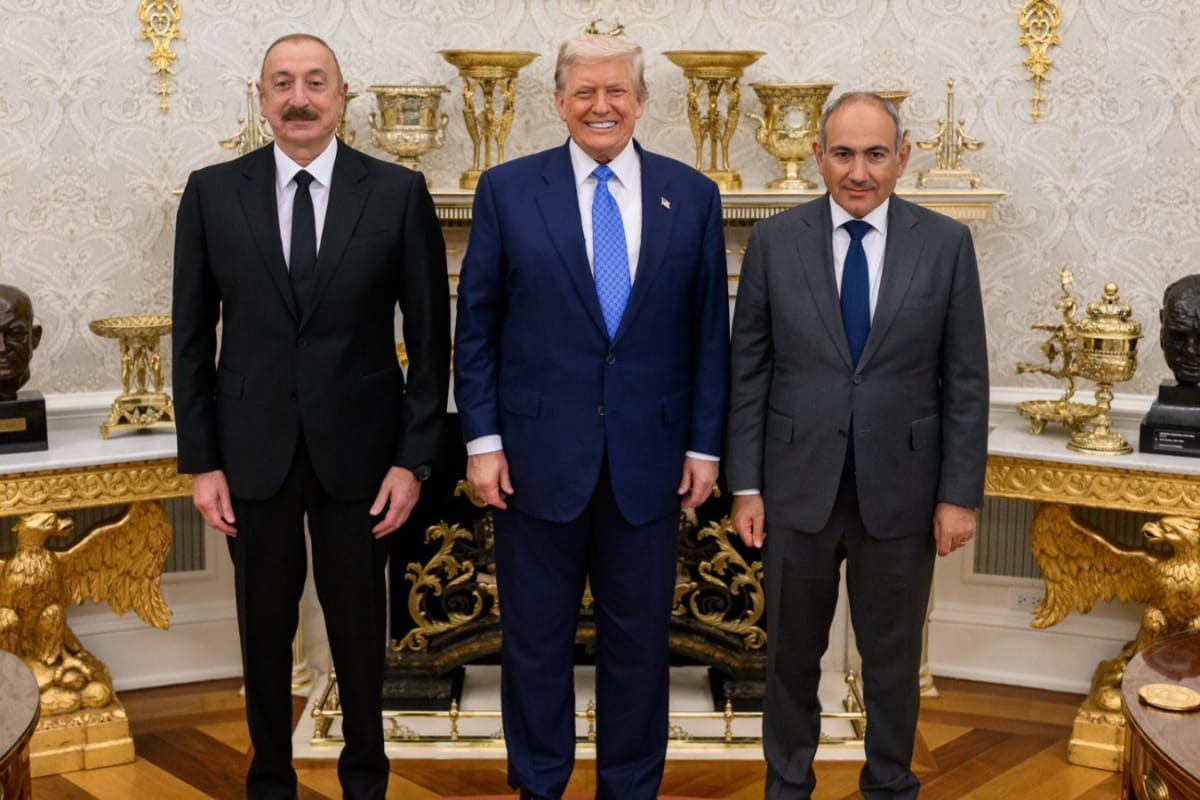

During the signing of the Armenia-Azerbaijan peace pact, President Donald Trump again claimed credit for brokering a ceasefire between India and Pakistan, a statement that has been met with both support and denial. Trump asserted that he helped avert a "nuclear conflict" between the two nations, highlighting his administration's role in de-escalating tensions. This claim, however, has been disputed by India, with officials stating that the ceasefire was secured through direct military talks without U.S. mediation.
At the White House ceremony, where Azerbaijani President Ilham Aliyev and Armenian Prime Minister Nikol Pashinyan signed the peace agreement, Trump presented himself as a peacemaker on the world stage. He stated that his "highest aspiration is to bring peace and stability to the world," and that the Armenia-Azerbaijan signing "follows our success with India and Pakistan". Trump also claimed his administration has stopped six wars, "averaging about a war a month".
Trump credited trade deals as the reason for the resolution between India and Pakistan. He stated that he told one of the two nations during discussions about trade that he was, "not going to sign a trade deal if you guys are going to fight". He said he spoke with the other nation as well, and that the "great leadership" in both countries led to the end of the potential war.
India's Ministry of External Affairs has maintained that the U.S. role in the 2025 ceasefire was negligible, emphasizing that the resolution was achieved through bilateral talks. Despite this, Trump has continued to assert his involvement, a move that analysts suggest is aimed at bolstering his image as a dealmaker and peacemaker.
Trump's claims have drawn mixed reactions. While some, including those eager to get in Trump's good graces, have proposed nominating him for the Nobel Peace Prize, others view his statements as exaggerations. Some observers have noted that Trump's approach involves taking credit for de-escalating conflicts, even when the U.S. role is limited.
In addition to the India-Pakistan ceasefire, Trump has also taken credit for de-escalating conflicts between Thailand and Cambodia, as well as securing a ceasefire between Rwanda-backed militants and the Congolese central government. He has also mentioned his administration's efforts to address the conflict between Russia and Ukraine.
Despite facing challenges in securing high-profile peace agreements, such as ending the Russia-Ukraine war or the Israel-Palestine conflict, Trump has presented himself as a "peacemaker-in-chief". His administration officials have highlighted his role in resolving a thorny issue in the Armenia-Azerbaijan dispute, namely the future of the Zangezur Corridor, a stretch of Armenian territory between Azerbaijan and its Nakhichevan exclave. The agreement will see the United States administer this corridor along Armenia's border with Iran.
While Trump's claims regarding the India-Pakistan ceasefire remain a point of contention, his involvement in the Armenia-Azerbaijan peace pact has been widely recognized as a diplomatic victory. As he continues to navigate complex international relations, Trump's efforts to position himself as a global peacemaker are likely to remain a key aspect of his foreign policy.